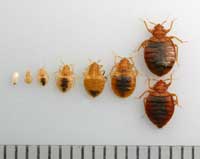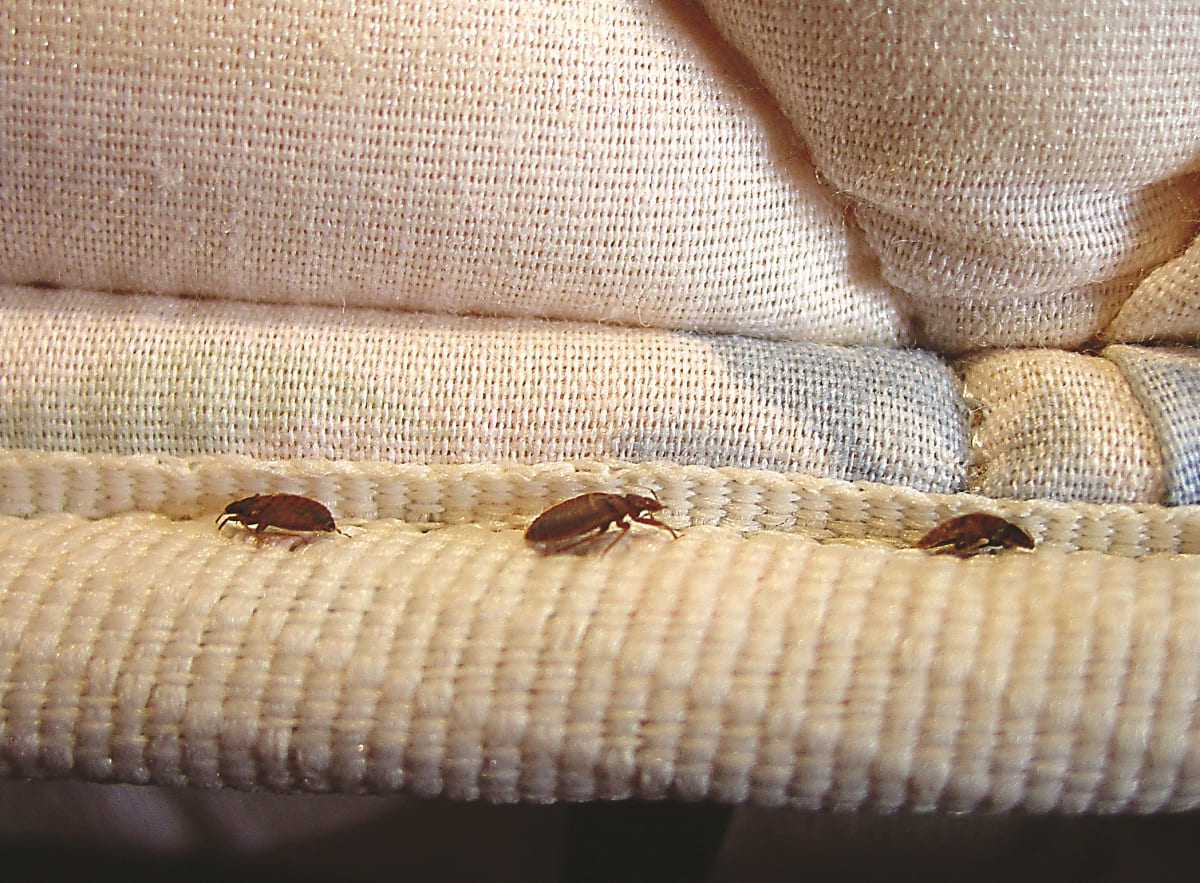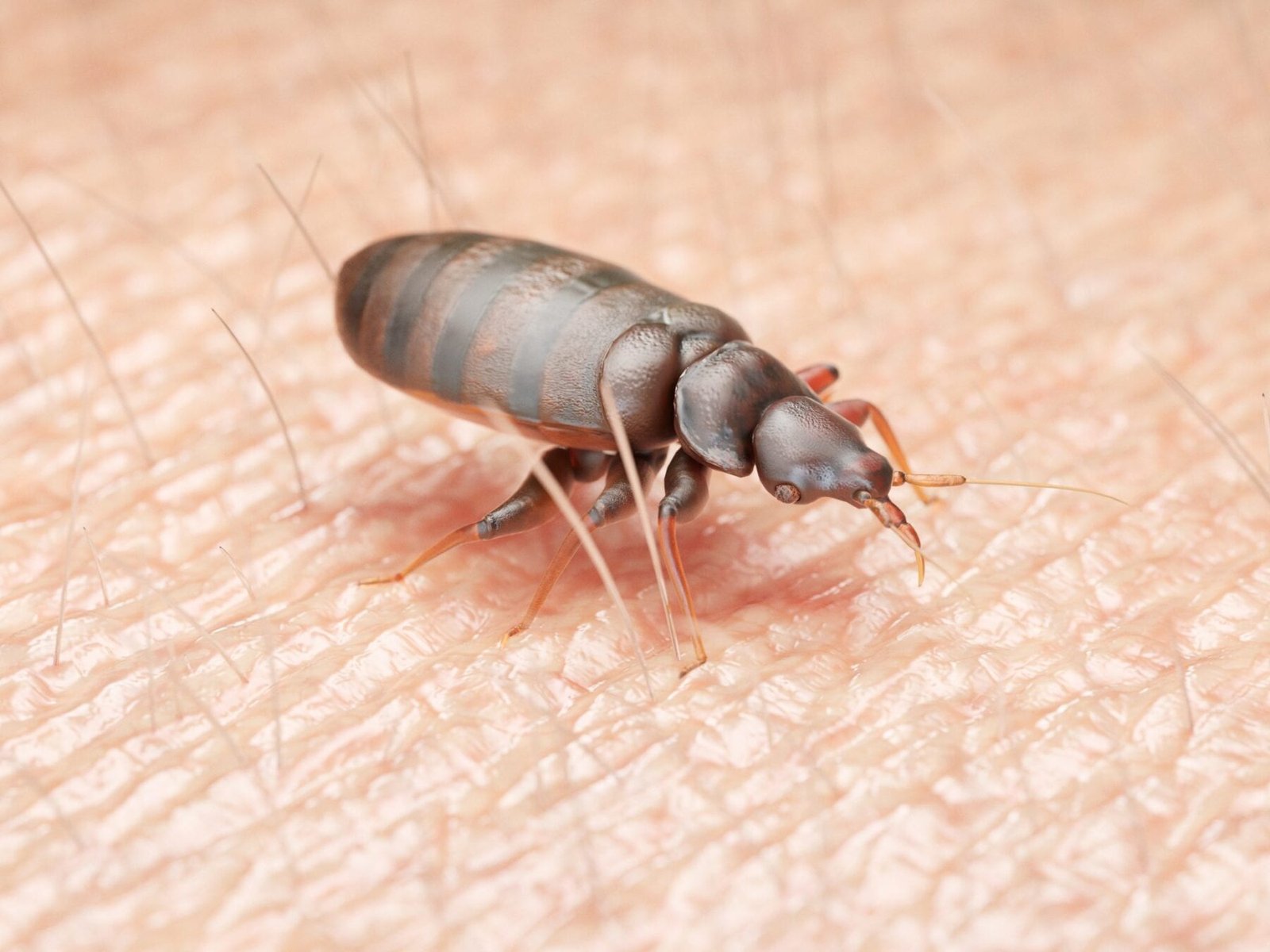Bed bugs can starve within 20-400 days, depending on temperature and conditions. Proper treatment is necessary to eradicate them efficiently.
Bed bugs are blood-sucking pests that can survive without a blood meal for about 20 to 400 days. Factors such as temperature, humidity, and individual bug health play a role in determining how long they can last without feeding. Although bed bugs can go for a prolonged period without a meal, they typically seek out a host every 5-10 days to feed on blood.
Understanding the survival capabilities of bed bugs is crucial in combating infestations effectively. Implementing comprehensive pest control strategies is essential in eradicating these resilient insects and preventing future re-infestations.

Credit: ipm.ucanr.edu
Life Cycle Of Bed Bugs
Understanding the life cycle of bed bugs is crucial in effectively combating an infestation. From the egg stage to adulthood, bed bugs go through several developmental phases before becoming full-grown pests.
Egg Stage
In the egg stage, bed bugs lay tiny white eggs, typically in clusters, that hatch after about 6 to 10 days. These eggs are almost microscopic, making them hard to spot with the naked eye.
Nymph Stage
The nymph stage follows the egg stage, where the bed bugs emerge as small and translucent nymphs. Nymphs go through five molting stages, shedding their exoskeleton as they grow, and require frequent blood meals to advance to the next stage.
Adult Stage
In the adult stage, bed bugs reach sexual maturity and are around the size of an apple seed. At this point, they can reproduce and continue the infestation cycle. Adult bed bugs can survive several months without feeding if necessary.

Credit: www.winnipegbedbugheating.com
Feeding Habits Of Bed Bugs
Bed bugs’ feeding habits play a crucial role in their survival and reproduction.
Frequency Of Feeding
- Bed bugs feed every 5-10 days to survive and reproduce.
- They prefer feeding during the night when their hosts are asleep.
Duration Of Feeding
- Bed bugs typically feed for <10 minutes per session.
- Their saliva contains numbing agents, allowing uninterrupted feeding.
Factors Affecting Starvation Time
Starvation time for bed bugs varies based on factors like temperature, humidity, and access to hosts. Typically, bed bugs can last weeks without feeding, influenced by environmental conditions. A cooler environment may prolong the time it takes for bed bugs to starve.
Factors Affecting Starvation TimeBed bugs, like any other living organism, require a source of food to survive. The time it takes for bed bugs to starve can vary depending on several factors. These factors include the temperature, availability of hosts, and the population size of bed bugs. Understanding these factors can give you insights on how long it takes for bed bugs to go without a meal.TemperatureTemperature plays a major role in the survival and starvation time of bed bugs. These blood-sucking pests thrive in environments with temperatures between 70°F and 80°F (21°C to 27°C). In such conditions, their metabolism is higher, and they require regular blood meals to sustain themselves. However, when the temperature drops below 59°F (15°C), bed bugs enter a state of hibernation known as diapause. During this period, their metabolism slows down, allowing them to survive for longer periods without feeding.Availability of HostsThe availability of hosts, specifically humans or animals, is another crucial factor affecting the starvation time of bed bugs. Bed bugs primarily feed on human blood and rely on the presence of hosts for their survival. When hosts are consistently available, bed bugs can feed regularly and reproduce, ensuring their population thrives. However, if hosts are scarce or inaccessible, such as in vacant rooms or apartments, bed bugs are forced to go without food. Their survival time will depend on how long they can endure without a meal.Population SizeThe size of the bed bug population also affects their starvation time. In a large infestation with a substantial number of bugs, competition for food becomes intense. With more bed bugs vying for the available food source, some individuals may go without feeding for longer periods. Conversely, in a smaller population, bed bugs have a higher chance of securing regular meals, as there is less competition. This can lead to a shorter starvation time for each individual bug.In conclusion, several factors influence the time it takes for bed bugs to starve. Temperature plays a significant role, with lower temperatures prolonging their survival time. The availability of hosts also affects their ability to feed and survive, while population size and competition for food can impact individual starvation time. Understanding these factors can help in developing effective pest control strategies and safeguarding your home from these persistent pests.How Long Can Bed Bugs Survive Without Feeding?
How Long Can Bed Bugs Survive Without Feeding?
At Normal Room Temperature
Bed bugs at normal room temperature can survive without feeding for around 20 to 400 days, depending on the life stage and environmental conditions. Adult bed bugs can survive longer without a blood meal than nymphs due to their stored fat reserves, which enable them to endure extended periods of starvation.
Under Extreme Conditions
When faced with extreme conditions, such as reduced temperatures or limited access to hosts, bed bugs can enter a state of dormancy known as diapause. During diapause, bed bugs can live without feeding for up to a year or more. This survival mechanism enables them to endure harsh conditions and emerge to seek a blood meal when the environment becomes favorable again.
Signs Of Starvation In Bed Bugs
Bed bugs, like any living organism, require sustenance to survive. When they are deprived of a blood meal for an extended period, certain signs of starvation become noticeable in these pesky pests. By understanding the signs of starvation in bed bugs, it becomes possible to identify their presence and take appropriate action to eradicate them from the infested area.
Physical Appearance
During starvation, bed bugs undergo notable physical changes. They become visibly deflated and their body shape alters, appearing more flattened and shriveled. The once rounded and reddish-brown appearance of a well-fed bed bug may transform into a flatter, pale, and translucent look. The reduction in their body size makes them harder to detect and more adept at hiding in crevices and cracks.
Behavioral Changes
As bed bugs starve, their behavior undergoes significant alterations. They become more sluggish, displaying reduced mobility and diminished activity levels. Additionally, their reproductive capacity declines, leading to a decrease in the number of eggs laid. Starving bed bugs may show increased aggression in their quest for a blood meal, making their bites more frequent and persistent. These behavioral changes can impact their ability to infest new areas, causing them to remain localized in their existing harborage sites.

Credit: storables.com
Preventing Bed Bug Infestations
Preventing bed bug infestations is essential to maintain a healthy and comfortable living environment. These tiny pests can quickly multiply and cause significant discomfort and distress. By adopting a few preventive measures, you can greatly reduce the risk of a bed bug infestation in your home. Let’s explore some effective strategies to keep these pesky insects at bay:
Regular Cleaning And Vacuuming
Regular cleaning and vacuuming not only help keep your home tidy but also serve as a crucial preventive measure against bed bug infestations. These pests tend to hide in cracks, crevices, and upholstery, making it important to maintain a clean and clutter-free living space. Vacuuming your floors, carpets, and furniture on a frequent basis can effectively remove bed bugs, as well as their eggs and droppings.
Using Mattress Covers
Another effective way to prevent bed bugs from infesting your mattress is by using mattress covers. These covers act as a protective barrier, preventing bed bugs from entering or escaping the mattress. Opt for high-quality, zippered mattress encasements that are specifically designed to prevent bed bug infestations. Ensure that the cover completely encases the mattress, including the seams and edges, leaving no room for bed bugs to access or hide. Regularly inspect and clean the covers to maintain their effectiveness.
Sealing Cracks And Crevices
Bed bugs are notorious for hiding in small cracks and crevices around your home. To thwart their efforts, it’s crucial to seal off any potential entry points. Carefully inspect your walls, baseboards, and furniture for any openings or gaps and seal them using caulk or another suitable sealant. Pay close attention to areas around electrical outlets, pipes, and windows. By eliminating these hiding spots, you make it harder for bed bugs to infest your home.
By implementing these preventive measures, you can significantly reduce the risk of a bed bug infestation in your home. Regular cleaning and vacuuming, using mattress covers, and sealing cracks and crevices are simple yet effective ways to protect yourself and your family from the inconvenience and discomfort caused by these persistent pests.
Frequently Asked Questions For How Long Does It Take For Bed Bugs To Starve?
How Long Can Bed Bugs Live Without Feeding?
Bed bugs can survive without a blood meal for up to 20 to 400 days, depending on temperature and humidity.
What Happens To Bed Bugs If They Don’t Feed?
If bed bugs are deprived of a blood meal, they become weakened and may eventually die, but they can survive for an extended period.
Do Bed Bugs Starve To Death Over Time?
Bed bugs can starve to death, but their survival without a meal depends on environmental factors such as temperature and humidity.
Can Bed Bugs Survive Without A Host To Feed On?
Yes, bed bugs can live without a human host and can survive by feeding on alternate hosts or by going into a dormant state.
Conclusion
Bed bugs can survive for months without feeding, enduring hunger until their next blood meal. However, it is crucial to take immediate action upon detection to prevent their infestation from growing and to minimize their hunger duration. By implementing effective eradication methods and seeking professional assistance, you can successfully eliminate bed bugs and protect yourself from their persistent hunger.
Stay vigilant and proactive to ensure a bed bug-free environment.

I’m MD Tanvir, and I bring years of expertise gained from working closely with pest control companies to the forefront. My journey in the industry has inspired me to launch Bug Battler, a platform aimed at equipping people with the know-how to combat pests autonomously. Through Bug Battler, I aim to empower individuals with practical insights to tackle pest infestations effectively.

